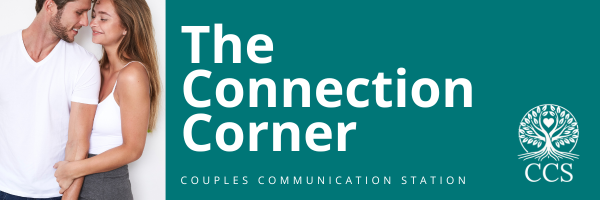- Sep 27, 2025
The Emotional Hangover: How to Recover When Someone Else’s Negativity Follows You Home

The Lingering Weight
The other night, what was supposed to be a simple dinner out with my husband turned into something else entirely. Instead of laughter and connection, we ended up sitting across from a storm of frustration and anger.
By the time I got home, I wasn’t just tired; I was emotionally wrecked. My shoulders were tight, my chest heavy, and eventually, I broke down in tears. It hit me: I wasn’t just processing my own feelings. I was carrying his.
That’s what I call an emotional hangover: when someone else’s negativity clings to you long after the interaction is over.
Why Emotional Hangovers Happen
There’s actually a name for this: emotional contagion. Humans are wired to pick up on the moods and energy of the people around us. It’s part empathy, part survival instinct; the very thing that helps us connect with others. But the same thing that makes us compassionate can also leave us completely drained.
Think about it: have you ever walked away from a conversation feeling like you just ran an emotional marathon? Maybe nothing happened to you directly, yet you felt heavy, tired, or on edge. That’s because some people radiate their heaviness, and if you’re sitting close, listening closely, or naturally empathetic, it’s almost impossible not to absorb it.
The Cost of Carrying It Home
Here’s the tricky part: when you take on someone else’s storm, it doesn’t stop at the door when you walk into your house. It follows you in. And it shows up in ways you might not even notice at first:
Your attention shifts away from your partner because you’re replaying what just happened
You feel exhausted, irritable, or even tearful without fully knowing why
Tension builds in your relationship, even though it wasn’t your fight to begin with
In other words, what started as their anger slowly transforms into your heaviness.
Signs You’re in an Emotional Hangover
So how do you know you’ve caught one? A few signs stand out:
You can’t stop replaying the conversation or moment in your head
Hours later, you still feel heavy, unsettled, or emotionally raw
You find it hard to re-engage fully with your partner, even though they’re right there
If any of this feels familiar, you’re not alone. Emotional hangovers are far more common than most of us realize. We just don’t always have a name for them.
Recovery Strategies: Letting Go of What Isn’t Yours
The good news? You don’t have to stay stuck in someone else’s storm. You can let it pass. A few simple strategies can make all the difference:
Pause + Name It - Acknowledge what’s happening: “This isn’t mine to carry.” Naming it out loud creates space between their energy and your peace.
Decompress Rituals - Take a hot shower, step outside for a walk, listen to music that lifts you, or journal it out. These little rituals signal to your body: “We’re done with this now.”
Recenter with Your Partner - Don’t let the negativity wedge itself between you. Do something grounding together; hold hands, breathe deeply for a minute, or check in with each other.
Set Boundaries for Next Time - If it’s a pattern with a specific person, be proactive. Limit exposure, or plan in advance how you’ll exit gracefully when the energy turns toxic.
Preventing Future Emotional Hangovers
Of course, sometimes you can’t avoid being around heavy energy altogether. But you can protect yourself better:
Pay attention to the people or situations that consistently leave you drained
Build a couple of “reset rituals” into your lives, like taking a walk after social gatherings or spending a few quiet minutes together before bed
And most importantly, remind yourself: protecting your emotional space isn’t selfish. It’s essential
Takeaway
Emotional hangovers are real. They sneak in quietly, but the impact can be huge. And just like a physical hangover, you don’t have to suffer through them. You can recover, reset, and protect yourself from the next one.
Boundaries and intentional recovery rituals aren’t about shutting people out. They’re about making sure your energy, your peace, and your relationship stay intact, no matter what storms come your way.
Reflection for You
Have you ever carried someone else’s anger or sadness long after they left? What helps you release it?
(And stay tuned...in my next post, I’ll be diving into why protecting couple time isn’t selfish. It’s one of the most loving things you can do.)